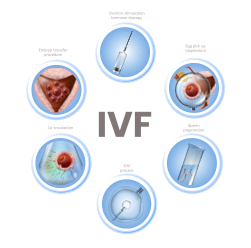
While it has been posited that assisted reproductive technology may contribute to a heightened risk of childhood cancer, the data addressing this issue have been mixed. A new population-based cohort study, published in JAMA Network Open, investigated over 2 million parent-child triads from Taiwan to determine if assisted reproductive technology is associated with childhood cancer.
The mean age of fathers and mothers was 33 and 31, respectively. Of the more than 2 million children analyzed, 52% were boys. Just over 8% of the children were born preterm, and 7.37% had a low birth weight. The researchers evaluated the potential impact of mode of conception on childhood cancer risk and whether being born preterm or at a low birth weight could explain any relationship. Modes of conception were defined as natural conception, subfertility (i.e. diagnosed with infertility but conception occurred without the use of assisted reproductive technology), and assisted reproductive technology (which included a diagnosis of infertility).
The researchers found that compared to the other modes of conception, physician or other provider assisted reproductive technology was associated with a heightened risk of childhood cancer, most of which was leukemia or liver tumors. Neither preterm birth nor low birth weight appeared to account for this increased risk.
The observation that those conceived with assisted reproductive technology have a higher risk for childhood cancer than those conceived from parents diagnosed with infertility that did not use these technologies suggests that it is more likely the technology than the parents’ infertility that contributes to cancer risk. However, more research is needed to determine if and how assisted reproductive technology may increase childhood cancer risk.
Reference
Weng SS, Huang YT, Huang YT, Li YP, Chien LY. Assisted Reproductive Technology and Risk of Childhood Cancers. JAMA Netw Open. 2022;5(8):e2230157-e2230157. doi:10.1001/JAMANETWORKOPEN.2022.30157
